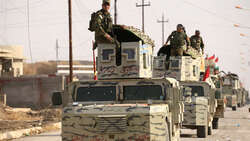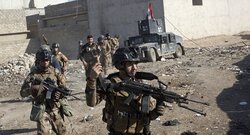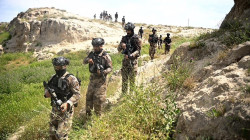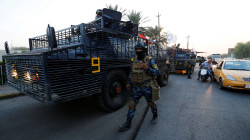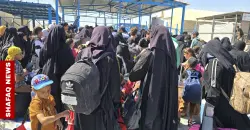Tragedy strikes Iraqi soldier in ISIS-infested "Valley of Death
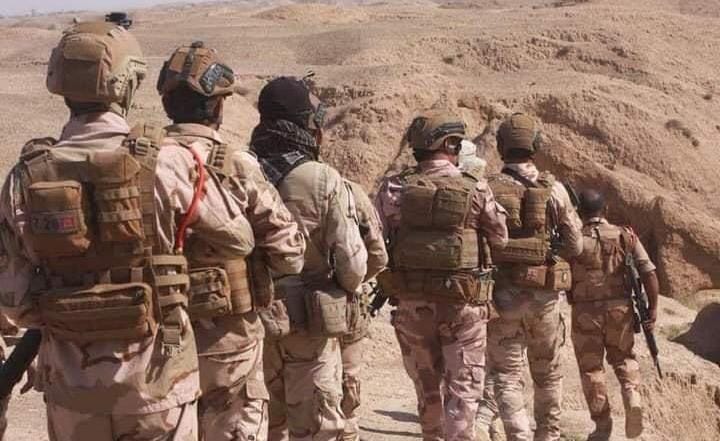
Shafaq News / The soldier Yasin Awied, from the town of Nahrawan in Baghdad, never imagined as he prepared to break his fast during the holy month of Ramadan that an ISIS bullet would turn his meal into a tragedy in Wadi Al-Shai, also known as the valley of death, in the Daquq district south of Kirkuk.
On Friday evening, Kirkuk governorate reported the fall of an Iraqi soldier victim to an attack carried out by ISIS elements on the headquarters of the Third Company of the First Battalion of the 44th Brigade, the 11th Division of the Iraqi Army. The division, a part of the Iraqi Army, is responsible for security operations in Daquq.
A security source said, "The soldiers had finished preparing breakfast, when an ISIS sniper's bullet hit the soldier in the chest area, causing severe bleeding that led to his death."
"The body was transferred to the forensic medicine and was then transported early Saturday morning to his family to complete the funeral and burrial arrangements."
Retired Iraqi Army officer Saadoun Subhi said, "Wadi Al-Shai is considered one of the challenging and difficult military areas due to its open terrain and multiple valleys, connecting Kirkuk to Saladin governorate. This valley extends from the Daquq to the area of Al-Azim."
He further explained that "The valley consists of water bodies (pools), as the locals call them in the Daquq district south of Kirkuk, with semi-mountainous areas and rugged terrain, and its open spaces allow for movement from Daquq towards the outskirts of the Tuz district. ISIS exploits the ruggedness of these terrains to attack our security forces."
Subhi stressed that "the security forces must adopt new security plans to eliminate these groups definitively, as yesterday's evening attack and other attacks indicate that there are still groups present in these locations that must be eradicated completely."
ISIS in Iraq continues to pose a significant security threat, despite its territorial defeat in 2017.
Its militants operate clandestinely, carrying out attacks against civilians, security forces, and infrastructure, particularly in areas with weak governance or ongoing instability.
They utilize guerrilla tactics, including ambushes, assassinations, and bombings, to destabilize the region and maintain a presence.
Iraqi security forces are actively engaged in counterterrorism operations to dismantle ISIS networks and prevent further attacks. However, their ability to exploit local grievances makes eradicating them a complex and ongoing challenge for Iraqi authorities.
